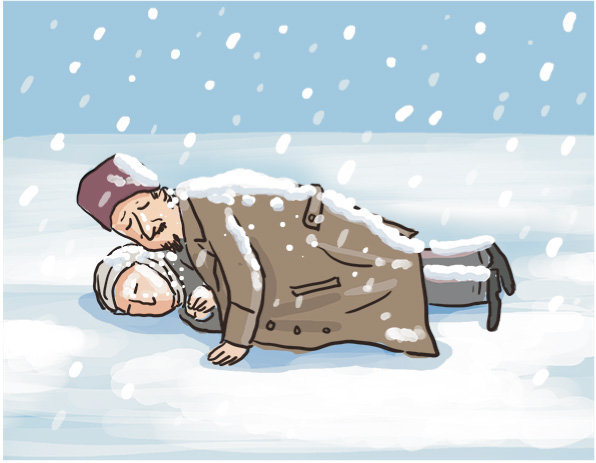A lesson by Tolstoy
A lesson by Tolstoy
Posted December. 21, 2022 07:42,
Updated December. 21, 2022 07:42

The story is based in Russia in winter in the 1870s. A landowner faces the risk of death encountering a blizzard and decides to save himself but leave his peasant. “That man is not worthy of living. He doesn’t mean much. His life doesn’t matter. But mine does,” he thinks. To him, a peasant is no different from something he can discard.
But no matter how hard he tries to find his way out on his horse, he wanders through the snow in circles, he realizes after falling from the horse. The peasant lies on the ground as snow builds on his body. The landowner does a surprising act. He dusts off the snow on the peasant’s body and lies on top of him with his fur coat open to keep the peasant warm. Eventually, he saves the peasant, but he dies.
Tolstoy believed that our inner voice nudges us toward love and sacrifice. The divinity within us, the moral force gently nudges us to save those dying. We must comply with the order humbly by saying, “Yes, I will do so.” This would not have been possible without everlasting trust in people. Keeping a frozen body warm with my own – that is the principle of religion taught to us by Tolstoy.






![“설거지해도 그대로”…냄비 ‘무지개 얼룩’ 5분 해결법 [알쓸톡]](https://dimg.donga.com/c/138/175/90/1/wps/NEWS/IMAGE/2026/01/15/133164664.3.png)
